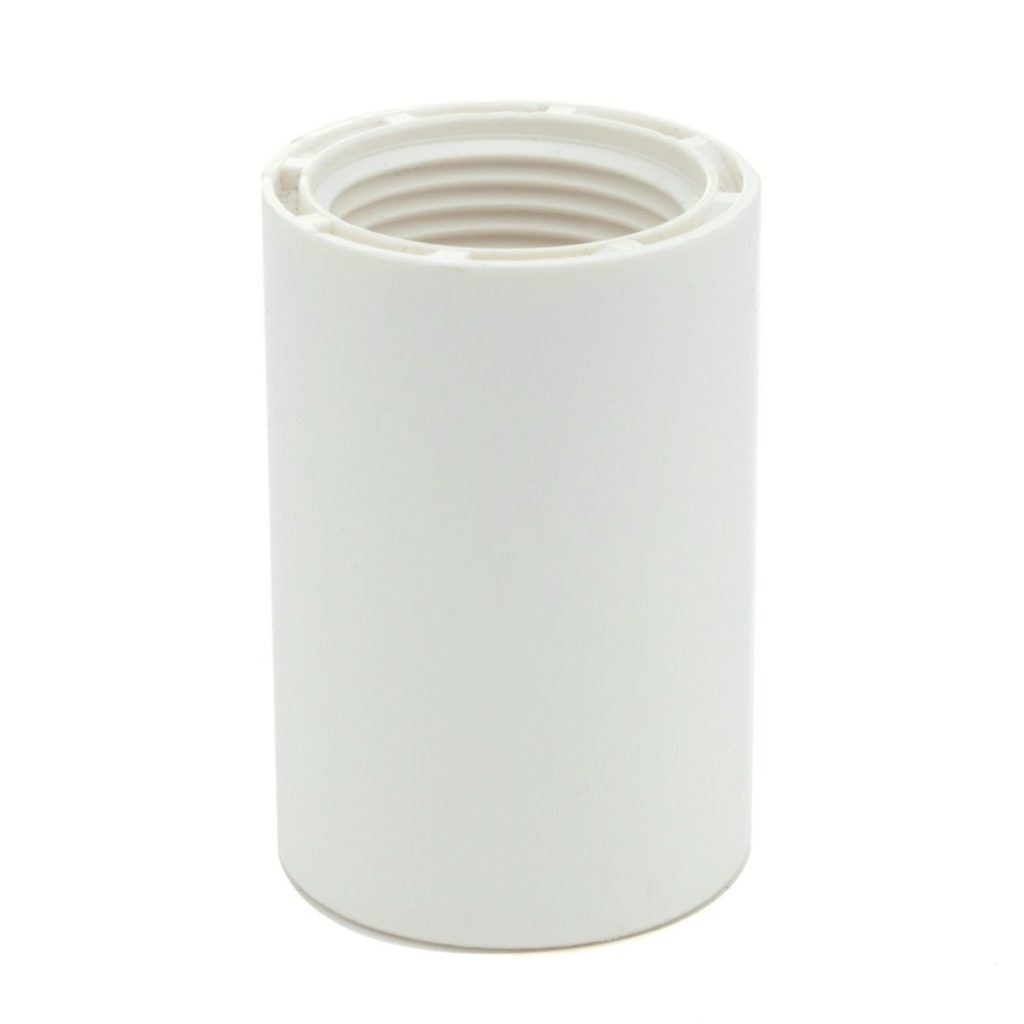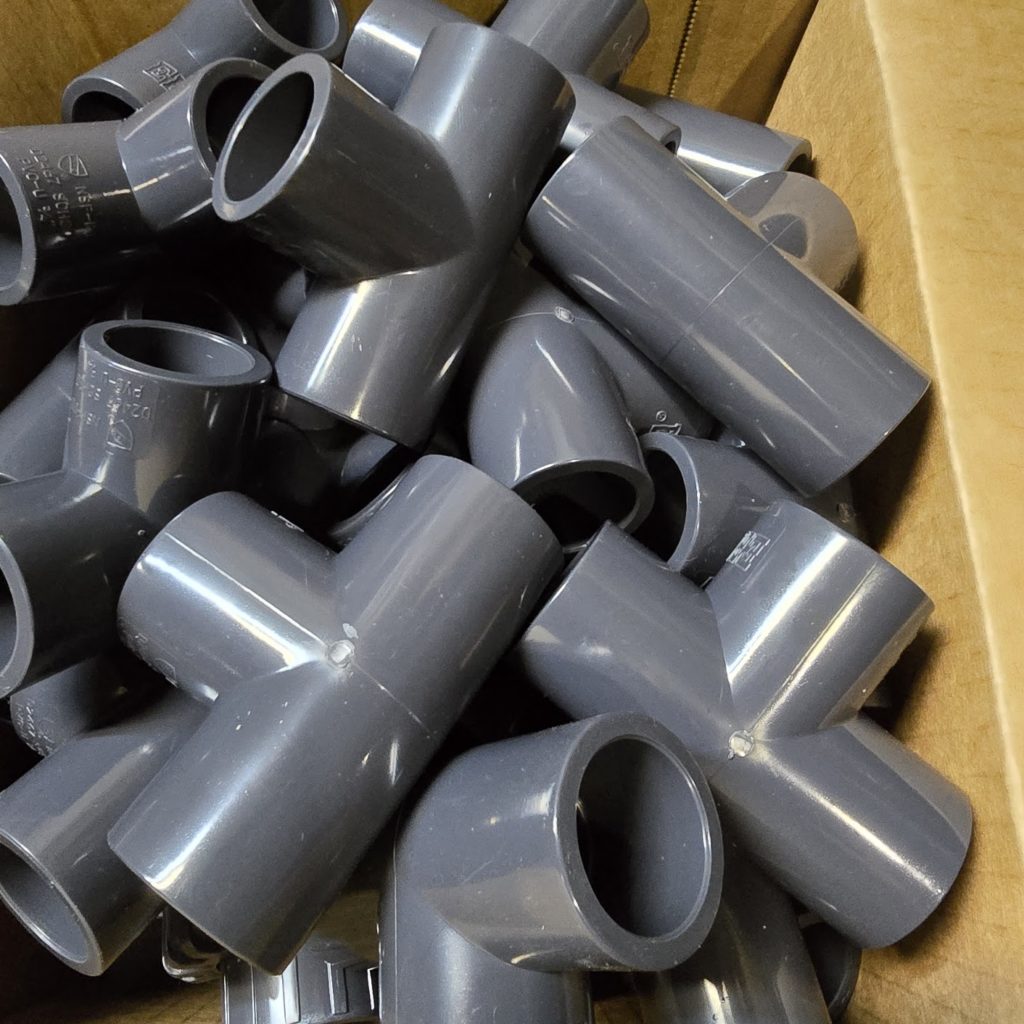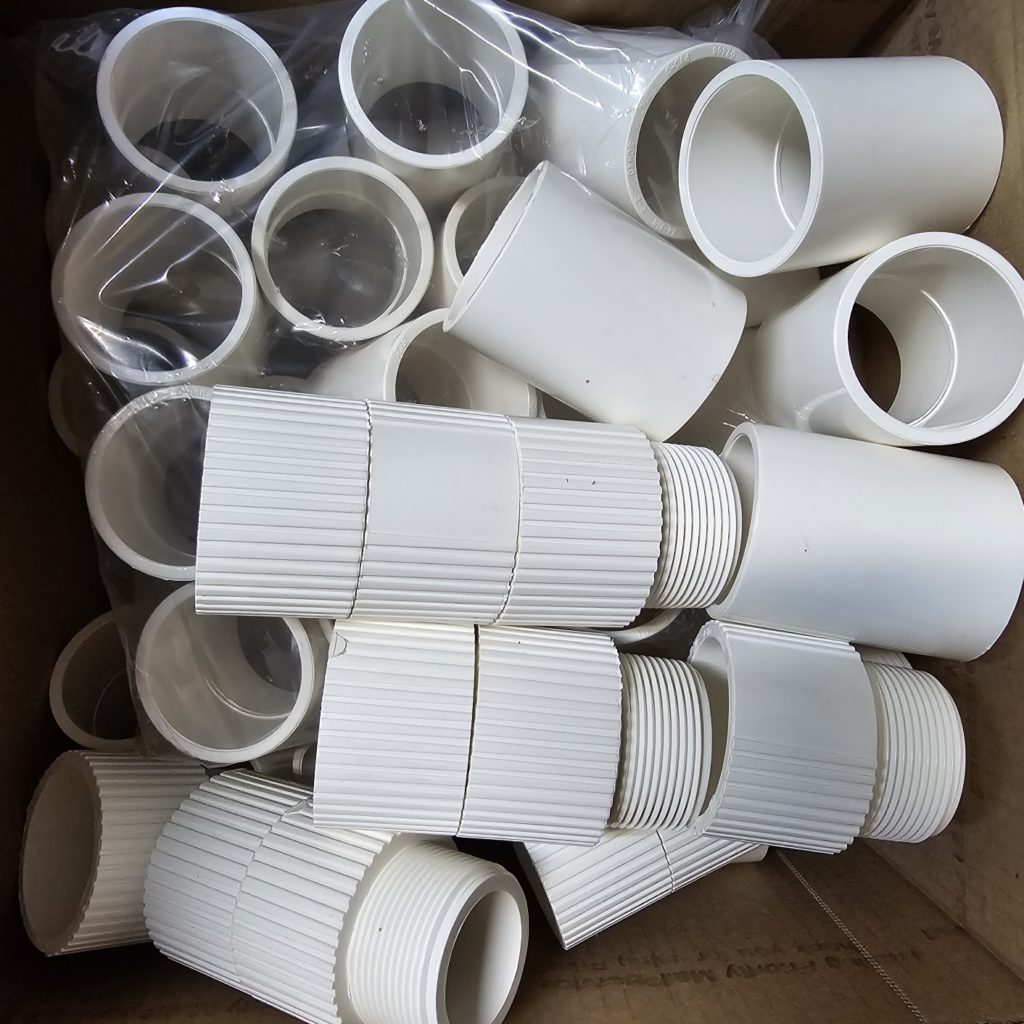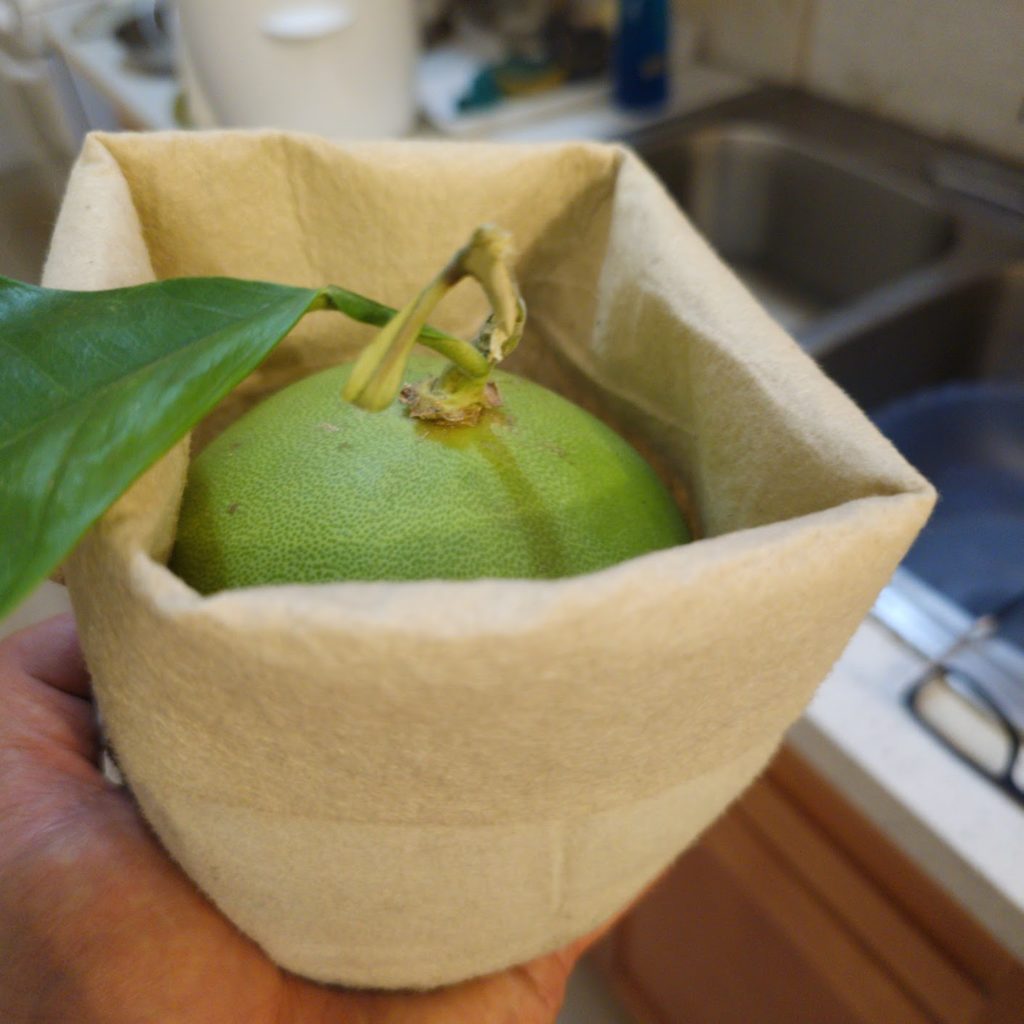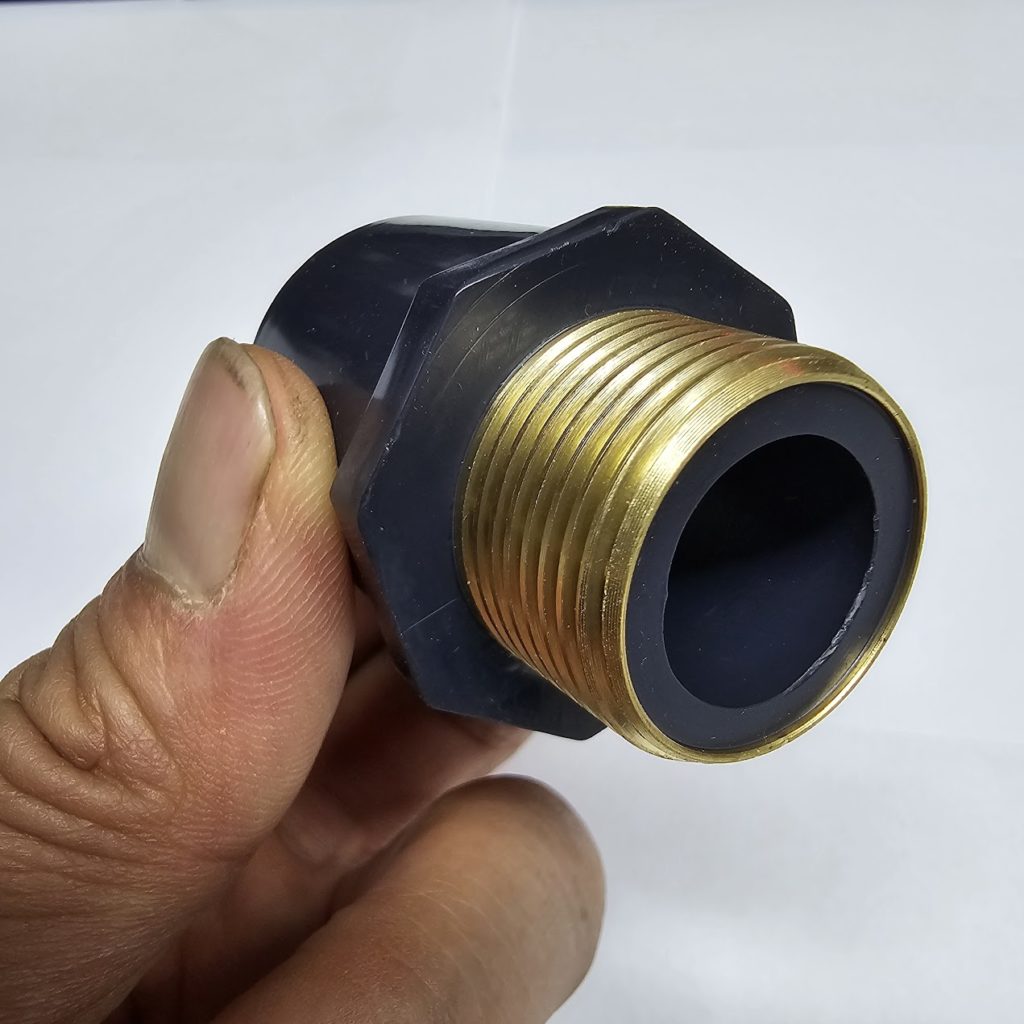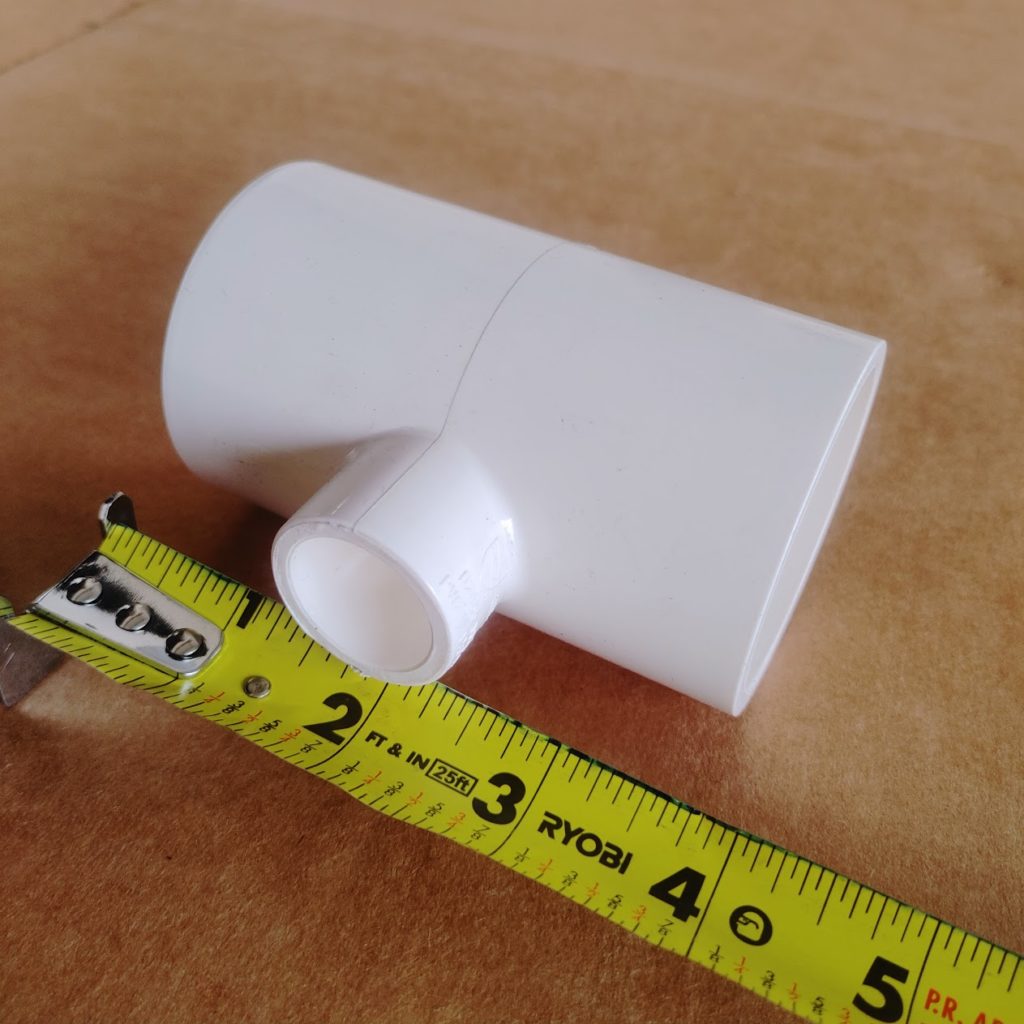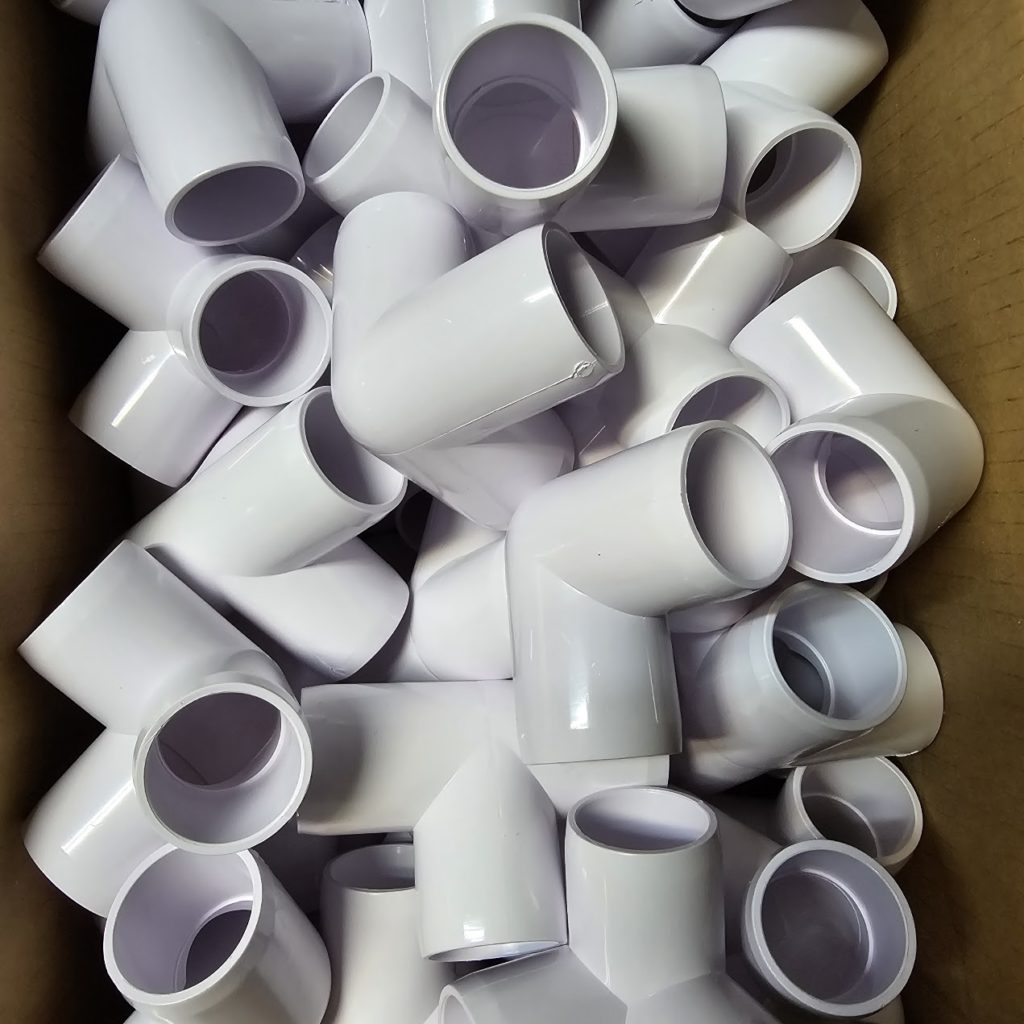A Schedule 80 PVC Van Stone Flange is a type of pipe flange used in plumbing and industrial applications. Unlike traditional flanges, a Van Stone flange is a two-piece design, consisting of a rotating ring (the actual flange) and a stub-end that is glued to the pipe. The key feature of a Van Stone flange is that the ring can...
247garden
-
What is a PVC Reducing Coupling?
A PVC reducing coupling is a type of fitting used in plumbing and piping systems to connect two sections of pipe with different diameters. It typically features a larger opening on one end and a smaller opening on the other, allowing for a smooth transition between pipes of varying sizes. These couplings are commonly used in residential and commercial plumbing... -
PVC Fitting Names
3-Way Elbow4-Way Elbow5-Way Elbow45° Elbow90° ElbowFemale Threaded ElbowAdaptersBackwater Valve DWV Ball ValveBushingCap/End PlugCheck ValveCompressionCompression CouplingCompact Ball ValveCouplings Couplings StandardCrossCross DWVElbowExpansion CouplingFaucetFemale AdapterFemale Cap Female Reducing RingFemale Threaded ElbowFemale UnionFlangeFloor DrainFoot ValveMale AdapterMale Compression Male Threaded ElbowMale Threaded PlugMale UnionMistingPlugReducerReducing AdapterReducing Coupling Reducing ElbowReducing Female AdapterReducing Female ElbowReducing Male AdapterReducing RingReducing TeeSaddleSingle Union Ball Valve Spring Check ValveTable Screw CapTeeFemale-Threaded TeeTee... -
What is the purpose of a PVC Female Adapter?
A PVC female adapter is designed to connect a PVC pipe to a component with a male threaded connection. It has a smooth (slip) socket end for gluing to a PVC pipe and an internal threaded end to receive a male threaded pipe or fitting. The primary purposes of a PVC female adapter include: Transition Between Pipe Types: It allows... -
What is difference between D2457 and D2467 ASTM PVC Fittings?
The main difference between ASTM D2457 and ASTM D2467 lies in their application and material specifications: ASTM D2457: Purpose: This standard specifies the test method for the gloss of plastics and nonmetallic coatings using a 60° specular gloss measurement. Use Case: It is primarily used to evaluate the surface finish or glossiness of plastic materials, not directly related to PVC... -
PVC Fittings. Buy in Bulk and Save!
Upgrade your plumbing, irrigation, or DIY projects with high-quality PVC fittings from 247Garden. We offer a wide selection of Schedule 40 and Schedule 80 PVC fittings, perfect for all your needs. Free shipping special for select items. Looking for extra discount for your business? Contact us today 323-318-2600 or email info@247garden.com -
The Cheapest Place to Buy Fabric Grow Bags
At 247Garden, we believe in growing more, for less. Get top-quality, durable fabric grow bags without the high price tag! Whether you’re cultivating herbs, veggies, or flowers, we’ve got the perfect solution for you. Now is the time to grow smarter, not harder! Find your perfect fabric grow bag at 247Garden—your go-to for the cheapest grow solutions, delivered right to... -
What is the purpose of a PVC Male Adapter?
A PVC male adapter serves the purpose of connecting a PVC pipe to a component with a female threaded connection. It has one end that is smooth (slip or socket) for gluing to a PVC pipe, and the other end has external threads. The key functions of a PVC male adapter include: Transitioning Between PVC and Metal or Other Materials... -
Different Types and Sizes of PVC Reducing Fittings
PVC reducing fittings are used to connect pipes of different sizes, allowing for smooth transitions between larger and smaller diameter pipes. Here are the common types of PVC reducing fittings: Reducing Coupling – A coupling that connects two pipes of different diameters in a straight line. Reducing Tee – A tee fitting where one outlet is smaller in diameter than... -
Cool DIY you can build yourself with 1/2 Furniture Grade PVC Fittings
Here are some fun and creative DIY projects you can build using 247Garden's 1/2" furniture-grade PVC fittings: DIY Kids Play Fort – Create a durable, lightweight fort for children to play in, perfect for both indoor and outdoor settings. PVC Shoe Rack – Build a simple shoe organizer to keep your entryway tidy. Portable PVC Hammock Stand – Construct a...

